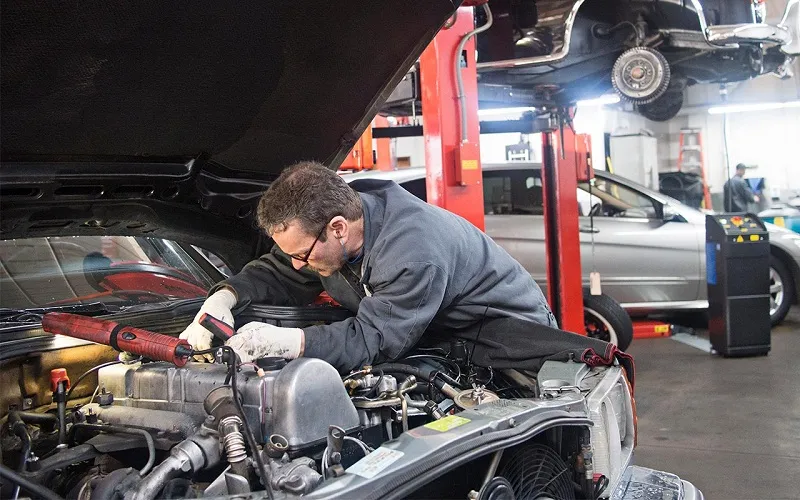
An auto mechanic is a professional technician who specializes in repairing and maintaining vehicles. Their primary responsibilities include diagnosing and troubleshooting mechanical issues, performing routine maintenance tasks, and making repairs to ensure a vehicle runs properly and safely.
Some of the common tasks performed by auto mechanics include:
- Conducting routine inspections: Auto mechanics perform routine inspections to identify potential issues before they become major problems. They check the vehicle's systems, such as the brakes, suspension, and engine, to ensure they are functioning properly.
- Diagnosing issues: When a vehicle has a problem, the auto mechanic uses specialized tools and equipment to diagnose the issue. They may use computer systems, test drives, or other methods to identify the root cause of the problem.
- Performing repairs: Once the auto mechanic has identified the issue, they perform the necessary repairs. This may include replacing parts, repairing damaged components, or adjusting systems to ensure proper functioning.
- Maintaining vehicles: They also perform routine maintenance tasks, such as oil changes, tire rotations, and brake pad replacements. They may also perform minor repairs, such as replacing light bulbs or wiper blades.
- Communicating with customers: Auto mechanics communicate with customers to explain the issues with their vehicles, the repairs needed, and the associated costs. They may also provide guidance on how to maintain the vehicle and prevent future problems.
Auto mechanics work in a variety of settings, including independent repair shops, dealerships, and franchise repair centers. They may also specialize in specific areas, such as brakes, transmissions, or engine repair.
To become an auto mechanic, one typically needs a high school diploma or equivalent and completion of a formal training program in automotive repair. Many auto mechanics also obtain certification from the National Institute for Automotive Service Excellence (ASE) to demonstrate their expertise and knowledge in the field.
A mechanic is a skilled tradesperson who uses tools and knowledge to maintain, repair, and troubleshoot machinery and mechanical systems. This can encompass a wide range of specialties, from automotive mechanics who work on cars and trucks to industrial mechanics who maintain factory equipment.
Types of Mechanis
- Automotive mechanics: Specialize in cars, trucks, and motorcycles, dealing with engines, brakes, steering, electrical systems, and other components.
- Diesel mechanics: Focus on heavy machinery like trucks, buses, and construction equipment, often working with diesel engines and hydraulic systems.
- Industrial mechanics: Maintain and repair industrial equipment in factories, Power plants, and other facilities, dealing with complex machinery and specialized systems.
- Aviation mechanics: Ensure the safety and functionality of aircraft by performing maintenance and repairs on various components, from engines and landing gear to electrical systems and navigation equipment.
Skills and qualifications:
- Technical skills: Strong understanding of mechanical principles, ability to use tools and diagnostic equipment, and proficiency in specific repair techniques for their chosen field.
- Problem-solving skills: Ability to analyze symptoms, identify root causes, and implement effective solutions for various mechanical issues.
- Communication skills: Explain technical concepts clearly to client, collaborate with colleagues, and document repairs accurately.
- Manual dexterity and hand-eye coordination: Precision and control are essential for handling tools and performing delicate repairs.
Overall, mechanics play a vital role in keeping our machinery running smoothly, ensuring safety, efficiency, and longevity. Their diverse skills and knowledge make them valuable assets in various industries, contributing to the smooth operation of everyday life.
